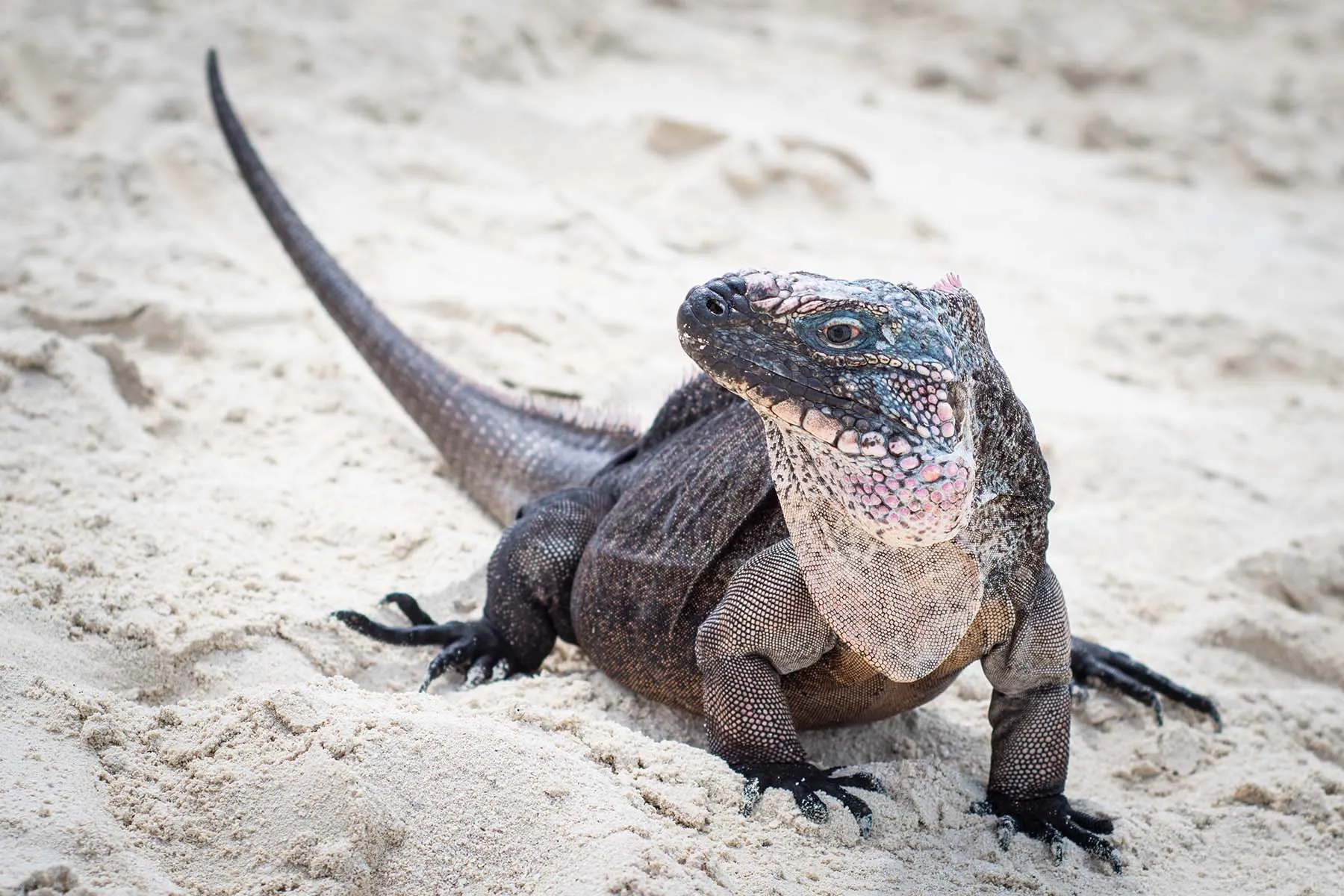[ad_1]
By Cara Murez
HealthDay Reporter
MONDAY, April 3, 2023 (HealthDay Information) — A household trip to recollect, however possibly not for the perfect causes.
Medical doctors report on an uncommon case the place a hungry iguana bit a vacationing toddler’s hand, passing on an an infection with a germ known as Mycobacterium marinum.
A 3-year-old lady named Lena Mars, of San Jose, Ca., was visiting Costa Rica together with her household and consuming cake whereas sitting on the seaside. Out of the blue an iguana ran up and bit the lady on the again of her left hand earlier than snatching away the cake.
Lena was instantly taken to an area clinic for remedy. However it was what occurred months later that make clear this uncommon an infection.
After the chew, the lady’s superficial wound on the again bone of her center finger healed shortly with no points after it was disinfected. Lena was additionally given 5 days of the antibiotic amoxicillin for potential salmonella publicity, which is frequent after reptile bites, the researchers mentioned.
Lena finally developed a small bump on the again of her left hand, which her mother and father, Julian and Luisa, famous about 5 months after the chew. Over the following three months, it progressively turned bigger. Then, the pores and skin in that space turned purple and mildly painful within the three months that adopted.
A go to to the Stanford Kids’s Well being Hospital in California included an ultrasound that exposed a mass according to a ganglion cyst, which is a fluid-filled lump. The placement and signs, nevertheless, didn’t make sense for this cyst.
An orthopedic surgeon eliminated the 2-centimeter thick-walled mass from Lena’s hand. When he did, he noticed pus oozing from the wound, an indication of an infection.
After trying on the tissue underneath a microscope, the surgeon discovered intensive tissue loss of life and necrotizing granulomatous irritation, which is an space of irritation the place the tissue has died.
The crew then did lab cultures, which discovered M. marinum, which is immune to frequent antibiotics, together with amoxicillin.
So, medical doctors gave the lady the antibiotics rifampin (Rifadin) and clarithromycin (Klaricid). Fortunately Lena responded nicely to remedy.
The discovering is to be introduced on the European Congress of Scientific Microbiology & Infectious Ailments, being held from April 15 to 18 in Copenhagen, Denmark.
“Our daughter, Lena, simply celebrated her 4th birthday and remains to be recovering from the surgical procedure in November,” Lena’s mother, Luisa Mars, mentioned in a gathering information launch. “The wound is simply closing, and the entire therapeutic course of has taken extra energy than the chew itself. Lena is the bravest little one we are able to think about, and he or she is dealing with the state of affairs fairly nicely. She undoubtedly remembers the chew and is aware of that the micro organism got here from the iguana. She’s going to in all probability always remember the expertise, however we hope that sometime we are able to all giggle about what occurred.
The examine authors consider Lena’s is the primary reported case of M. marinum an infection following an iguana chew.
M. marinum has been recognized to contaminate people who’ve pores and skin wounds uncovered to contaminated contemporary or salt water. It causes a tuberculosis-like sickness in fish.
Different infections from iguana bites can embody Serratia marcescens and Staphylococcus aureus, in addition to Salmonella enterica. About 75% to 90% of each wild and captive reptiles are colonized with these micro organism.
“M. marinum prefers decrease temperatures [86 degrees Fahrenheit] for optimum progress, and it’s extremely seemingly that the cold-blooded iguana, with physique temperatures starting from [71.6 degrees to 98.6 degrees F], could maintain these microbes as reservoirs,” defined lead creator Dr. Jordan Mah, from Stanford College College of Medication.
“The chew resulted in colonization by a bacterium not often present in people, and demonstrates that iguanas could also be carriers of dangerous micro organism able to producing extreme infections,” Mah mentioned in a gathering information launch. “This will assist inform well being care professionals of much less generally recognized bacterial infections following uncommon zoonotic exposures.”
Analysis introduced at medical conferences needs to be thought-about preliminary till revealed in a peer-reviewed journal.
Extra data
The Sepsis Alliance has extra on animal bites.
SOURCE: European Congress of Scientific Microbiology & Infectious Ailments, information launch, March 31, 2023
[ad_2]

